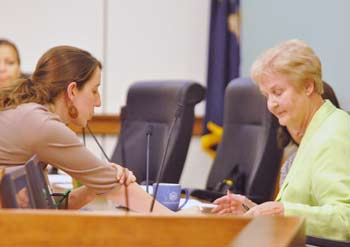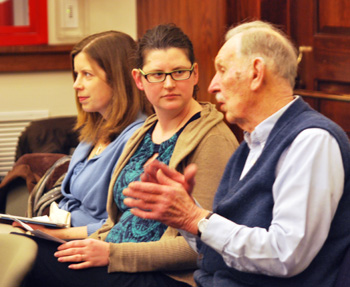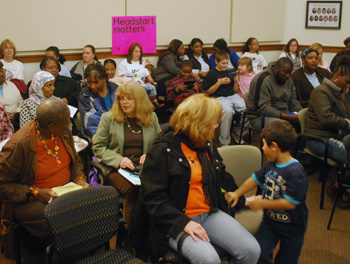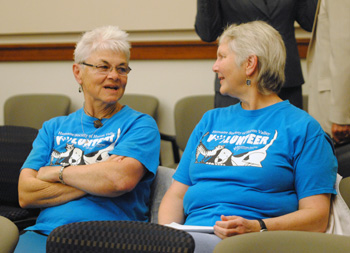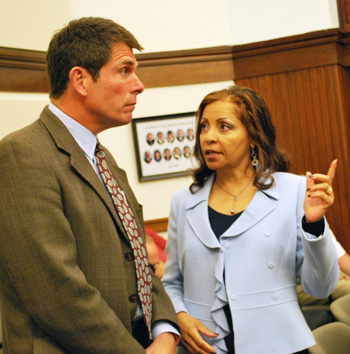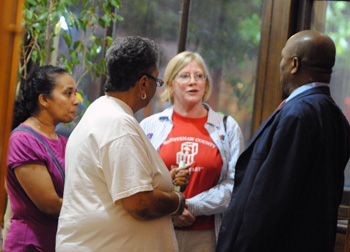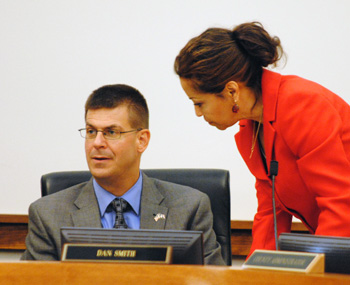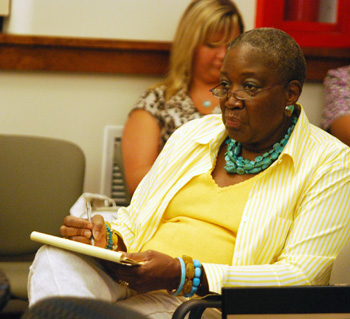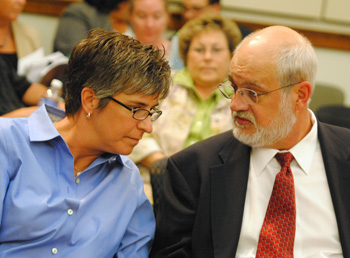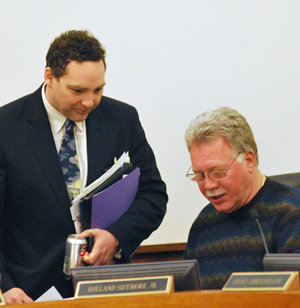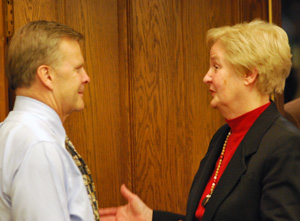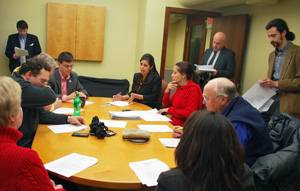Advocates for Homeless Appeal to County
Washtenaw County board of commissioners meeting (Jan. 22, 2014): About two dozen people – including members of Camp Misfit and Camp Take Notice – turned out at the county board’s Jan. 22 meeting to advocate for improved services for the homeless.

Some of the crowd at the Jan. 22, 2014 Washtenaw County board of commissioners meeting. (Photos by the writer.)
Speaking during public commentary, several people argued that the Delonis Center‘s warming center should be made available when temperatures are lower than 45 degrees. One woman presented a list of specific requests for expanded services at the homeless shelter, including 24-hour access to shower facilities and increased hours for access to laundry facilities.
There was no formal agenda item on this issue, but several commissioners agreed that the community needs to do more for the homeless. Conan Smith (D-District 9) noted that county had a 10-year plan to end homelessness, “and then we got socked by a terrible economy and made pretty dramatic reductions in the county’s spending.” [The Blueprint to End Homelessness was adopted in 2004 but appears to be dormant.]
The board ultimately voted to direct county administrator Verna McDaniel to address issues related to services for the homeless. They’ll be getting an update at their Feb. 6 working session from Ellen Schulmeister, director of the Shelter Association of Washtenaw County, which runs the Delonis Center.
Alicia Ping (R-District 3) cautioned against the county overstepping its bounds, and pointed out that the shelter is run by a separate nonprofit – although the county owns and maintains the building where the shelter is located at 312 W. Huron in Ann Arbor, and contributes some funding. Ping noted that the county also currently pays the Ann Arbor Downtown Development Authority for several parking spaces used by Delonis Center employees, and suggested that the money might be better spent on direct services to the homeless. The county is continuing to negotiate its parking contract with the DDA.
Also at the Jan. 22 meeting, the board made a range of appointments, including confirmation of Dan Ezekiel, former Ann Arbor greenbelt advisory commissioner, to replace Nelson Meade on the county parks & recreation commission. And former state legislator Alma Wheeler Smith was appointed to fill an opening on the southeast Michigan regional transit authority (RTA) board. Richard Murphy – one of two RTA board members from Washtenaw County – was not seeking reappointment. Smith was the only eligible applicant and is the mother of county commissioner Conan Smith, who abstained from the confirmation vote.
In addition, during the Jan. 22 meeting the board created a new committee to explore the cost to the county for providing employee health insurance coverage for autism. The board had received a staff presentation earlier in the evening about the possibility of offering such coverage.
In other action, the board gave initial approval to a proposed ordinance that would allow the county to issue municipal civil infractions for owning an unlicensed dog, with a final vote expected on Feb. 5. The ordinance could take effect 50 days after that, in late March, but county treasurer Catherine McClary indicated that her office would be looking to implement the changes in June or July. Several commissioners advocated for educational outreach to ensure that residents – especially in rural areas – will be aware of the changes.
The board also gave initial approval to establish a countywide Property Assessed Clean Energy (PACE) program, after hearing from several people during public commentary who supported the effort. A final vote to establish the program is expected at the board’s Feb. 5 meeting. [Full Story]




